Members
Sofia Balzaretti
Sofia Balzaretti, a renowned specialist in human rights law and feminist legal theory, is set to lead the IGD’s Legal Gender Team with a passionate commitment to integrating a gender perspective across all legal fields. Her groundbreaking PhD dissertation, “Le sexisme en droit suisse, européen et international - Pour une approche féministe du droit,” offered a critical examination of sexism within legal systems and advocated for a holistic, feminist approach. Sofia Balzaretti brings a wealth of knowledge on gender issues and human rights at Swiss, European, and international levels. Her extensive research on feminist legal theory, gender and LGBTQ+ rights, and discrimination law is pivotal to advancing the IGD’s mission.
At the IGD, Sofia Balzaretti’s team will tackle issues that intersect with anti-discrimination law, gender identity, and public policy, directly supporting IGD’s dedication to equality and diversity. Sofia Balzaretti emphasizes the importance of viewing gender issues through a transversal lens, ensuring that legal discourse reflects the interconnectedness of various legal domains. This approach not only enhances legal academic research but also informs practical advocacy and influences policy reforms.
At the IGD, Sofia Balzaretti’s team will address critical issues at the intersection of anti-discrimination law, gender identity, and public policy, reinforcing IGD’s commitment to equality and diversity. Sofia Balzaretti underscores the importance of a transversal perspective on gender issues, ensuring that legal discourse captures the interconnectedness of various legal domains. This innovative approach not only enriches legal academic research but also drives practical advocacy and shapes policy reforms.
The team’s strength and missions within the IGD will be :
Legal Research: Providing clear, actionable insights into current legal issues around gender and human rights.
Workshops: Offering specialized training for practitioners and policymakers on evolving issue of gender and the law.
Legal Clinics: Bringing gender law to a wider audience, empowering individuals with a clear understanding of their rights.
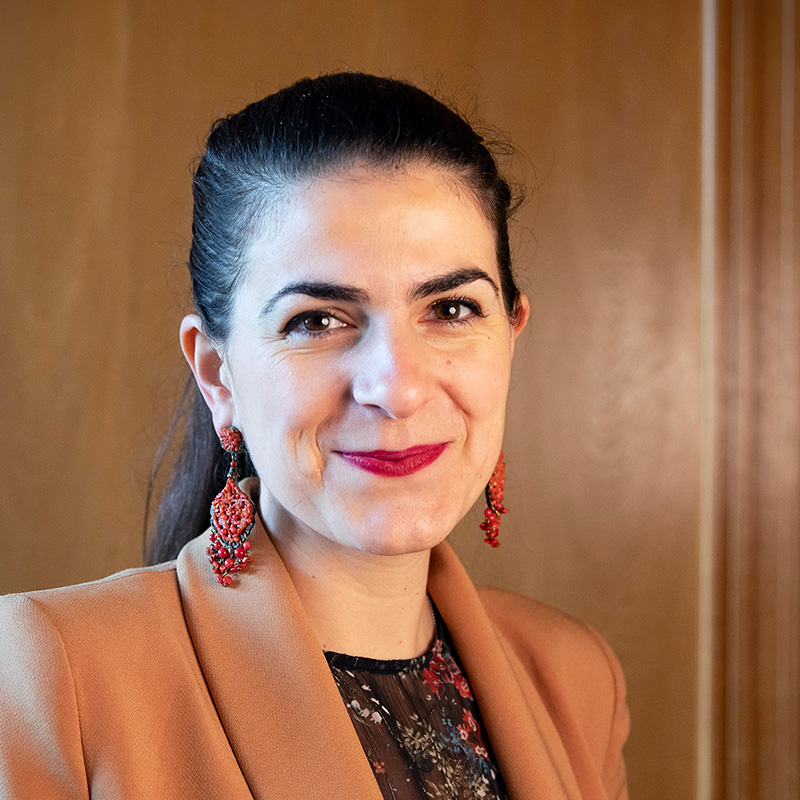
Christelle Dumas
Christelle Dumas is a development economist whose team offers an economic perspective on the question of gender and diversity representation. Her work broadly covers areas such as labor markets, fertility, poverty, and child labor. These domains inherently intersect with gender, as they often involve differential experiences and outcomes for women compared to men. By using rigorous microeconometric methods, her research provides quantitative insights into how gender shapes—and is shaped by—economic and social processes.
More precisely, she has worked on themes related to fairness and access to contraceptives, for instance, on the sensitive question of women’s sterilizations in India. Currently, she works on topics related to women's empowerment, such as whether and how labour pooling in rural Tanzania helps women improve their livelihoods. She has also written a literature review on the question of spouses’ cooperation in economic decisions. On the question of diversity representation, she studies quotas in local governments in India for lower castes and their effects on development.
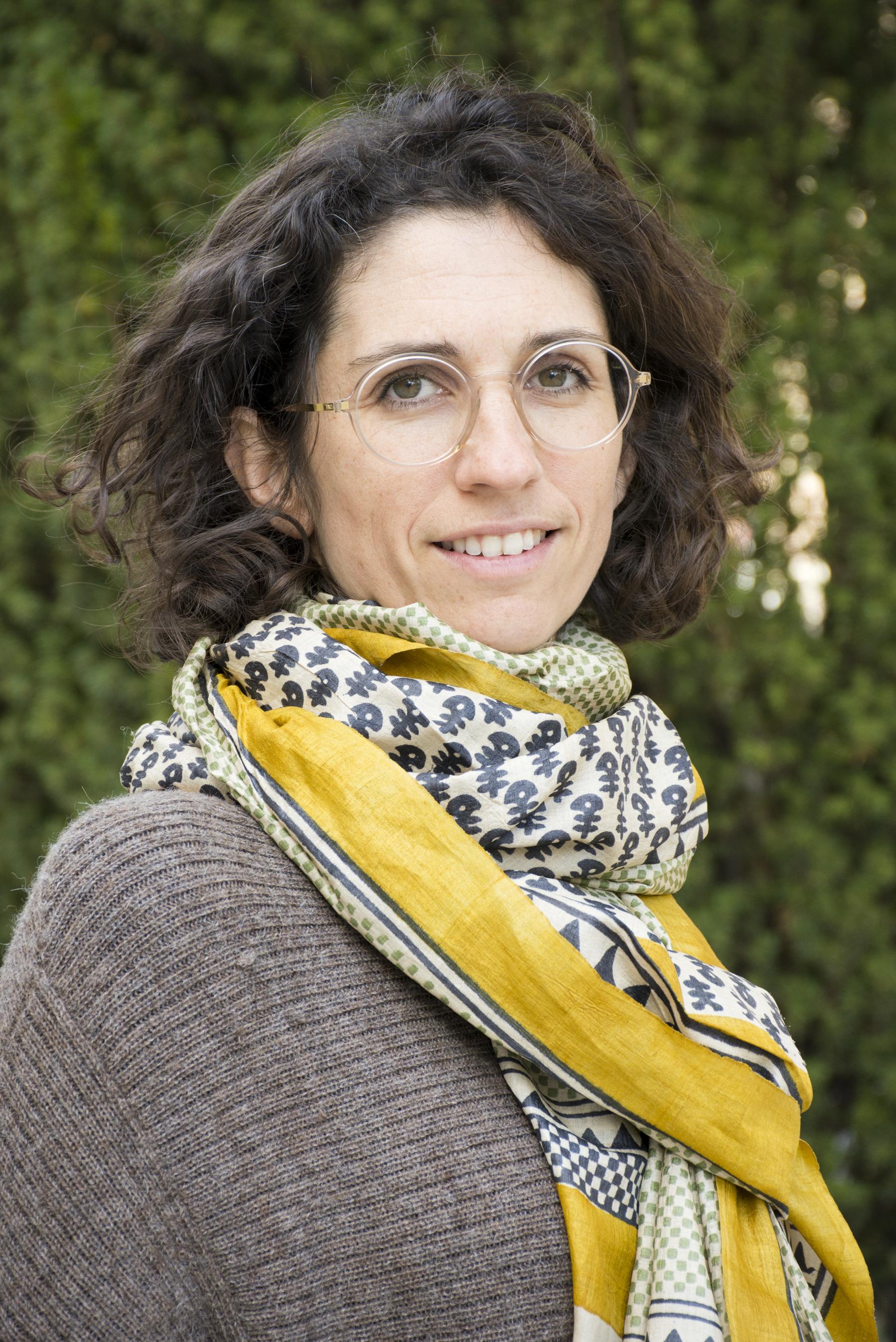
Lucie Escasain (she/her)
Profile Summary
Lucie Escasain is a PhD student at the University of Fribourg (Switzerland) in Psychology working in the research team of Psycholinguistics and Social Psychology, which specialises in decoding subtle links between language, sexism and gender representations.
Her doctoral research in experimental psychology focuses on the influence of gender stereotypes and gender-fair language on adolescents’ vocational aspirations, with particular attention to healthcare occupations and care work (HEED) in comparison to STEM fields.
She holds a master’s degree in health psychology and worked as a research assistant in public health from 2021 to 2025, on an open-prospective cohort examining healthcare professionals’ and informal caregivers’ well-being. She regularly teaches qualitative methods to bachelor’s students in medicine (UNIL).
Current Projects
Lucie Escasain completed her PhD within the SNF Project: Investigating how language and stereotypes influence vocational interests among children aged 12–18. She is currently on future projects on the topics of gender and health.
Awards and Recognition
In 2022, Lucie Escasain was awarded the Prize of the Faculty of Social and Political Sciences (UNIL) for her master’s thesis on gynaecologists’ perspectives regarding the discussion of sexuality with oncology patients.
Latest Public Understanding of Science
Lucie Escasain regularly facilitates workshops on theoretical and practical aspects of gender-fair language in French and on gender stereotypes for both adult and adolescent audiences. She has been invited to take part in round-table discussions on gender-inclusive language.

Ekaterina Filep
Profile Summary
Ekaterina Filep is an interdisciplinary postdoctoral researcher with a PhD in Geography from the University of Bern and an MA in Gender Studies from Central European University. Her research interests encompass gender, inclusion, and diversity, with a particular focus on Central Asia, Eastern Europe, and Switzerland. She is especially interested in how intersecting vulnerabilities shape experiences of migration and political participation, while also creating spaces for new forms of agency and resistance.
Current Projects
Ekaterina Filep is currently leading the RESIST (Fostering Queer Feminist Intersectional Resistances against Transnational Anti-Gender Politics). project at the University of Fribourg, which analyses anti-gender rhetoric, mobilisation, and counter-mobilisation across Europe. Based on research conducted in nine countries, including Switzerland, the project investigates the impacts of anti-gender rhetoric on feminists and LGBTIQ+ communities, with particular attention to experiences of hostility, insecurity, and resistance.
Her research demonstrates that even in contexts often perceived as progressive, such as Switzerland, anti-gender discourses are intensifying, resulting in threats against LGBTIQ+ events and Pride marches, as well as increasing levels of online harassment. At the same time, the project highlights the resilience strategies developed by affected individuals and groups, including community solidarity, educational initiatives, and forms of collective resistance. The RESIST project has received competitive funding from leading European, UK, and Swiss research councils, reflecting its urgency and international relevance.
Awards and Recognition
Ekaterina Filep has received multiple research grants and international scholarships from the Swiss National Science Foundation (SNSF), the Swiss Government (ESKAS), and the Soros Foundation. The current RESIST project has been awarded competitive funding from major European, UK, and Swiss research councils, recognising its innovative approach and its contribution to understanding contemporary challenges to gender equality and LGBTIQ+ rights.
Latest Public Understanding of Science
Ekaterina Filep organises and facilitates workshops on intersectionality, creating spaces for critical discussion on how intersecting systems of inequality shape lived experiences, particularly for migrants, LGBTIQ+ people, transgender people, and people with disabilities. Her work explores the intersections of gender, race, legal and economic status, and sexuality, addressing issues such as migration, anti-gender hostility, and everyday discrimination, with the aim of developing strategies for inclusive activism and policy-making.

Pascal Gygax
Profile Summary
Pascal Gygax has dedicated his research to understanding the foundations of androcentric perspectives, particularly how language shapes our perception of the world. His work emphasizes the role of linguistic structures in reinforcing or challenging societal norms and is driven by the belief that scientific inquiry can contribute to building a more progressive, inclusive, and equal society.
Funding and Collaborations
Over the past 20 years, he has secured approximately 27 national and international research grants, contributing to a total of €8 million in funding (about €4 million directly at the University of Fribourg). These achievements have been supported by strong collaborations, both nationally (e.g., Sandrine Zufferey, University of Bern) and internationally (e.g., Ute Gabriel, NTNU, Norway), fostering interdisciplinary approaches to language and cognition.
Current Projects
SNF Project: Investigating how language and stereotypes influence vocational interests among children aged 12–18.
Joint Weave Project: Exploring whether non-binary pronouns in Dutch, Norwegian, and French activate non-binary representations of individuals, in collaboration with Belgian colleagues.
Awards and Recognition
In 2024, Pascal Gygax was awarded the prestigious Marcel Benoist Prize, often referred to as the Swiss Nobel Prize, for his research on the interaction between language and thought.
Latest Public Understanding of Science
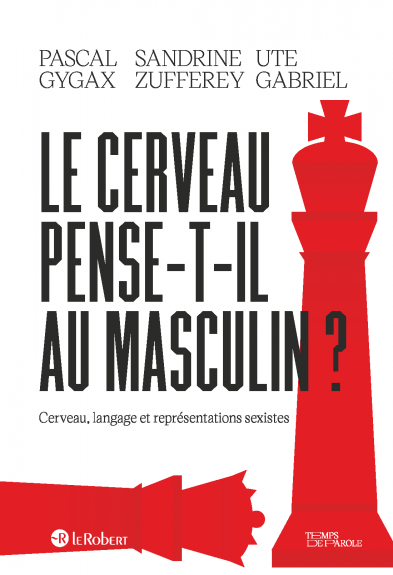 |
 |
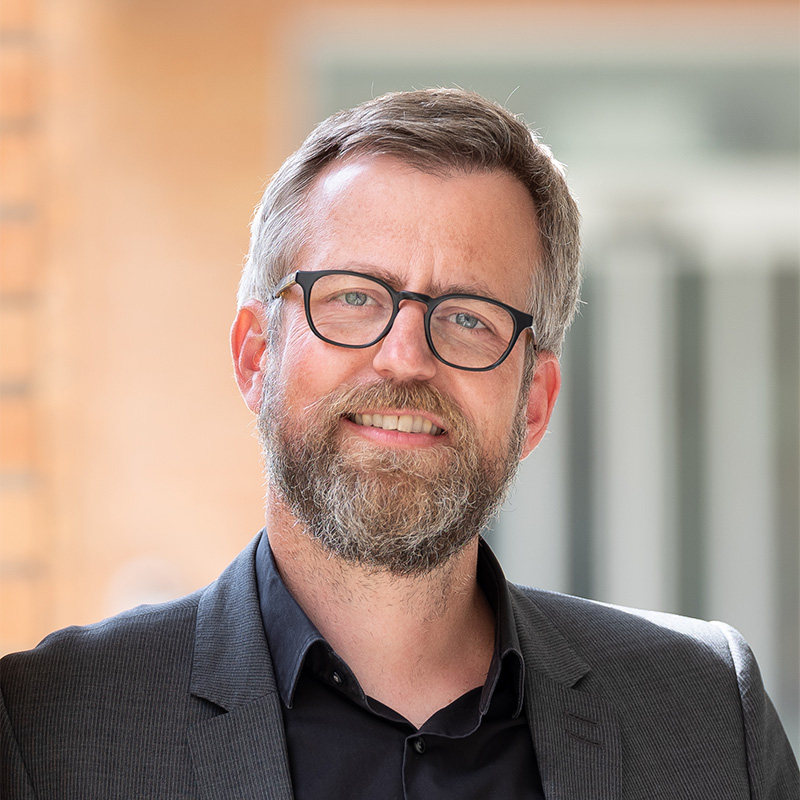
Tiziana Jäggi
Profile Summary
Tiziana Jäggi explores how language shapes cognition and social attitudes with a particular focus on gender-inclusive language, specifically gender-neutral pronouns. She has contributed to projects on the well-being of trans persons in Switzerland and published on topics such as gender-neutral pronouns, minority stress and the cognitive effects of linguistic structures.
Current Projects
Tiziana Jäggi is currently employed as postdoc funded by the SNF for a WEAVE project that explores whether gender-neutral pronouns in Dutch, Norwegian, and French can activate non-binary representations of individuals as well as their impact on perceived text comprehension and appreciation, in collaboration with Belgian and Norwegian colleagues. Further, she investigates how non-binary German-speakers express their identity through the constraint of binary language structures in German.
Latest Public Understanding of Science
Beyond her academic work, Tiziana Jäggi actively promotes science communication by offering workshops on gender-inclusive language in German for the general public. She has been invited to give talks and has shared her research in newspaper articles, television interviews and podcasts, making complex topics accessible to a broad audience.

Regula Ludi
Regula Ludi is a historian and has a rich research and teaching experience in modern and contemporary history with a special focus on gender relations. Areas of her expertise include the aftermath of the Holocaust, Nazi era refugees, human rights history, international feminism and the history of crime and criminal policy in the nineteenth century.
At the University of Fribourg, Regula Ludi regularly teaches introductory courses and MA seminars in Gender Studies for students of contemporary history, sociology and political science. She is the director of two research projects funded by the Swiss National Science foundation. The project Volunteering and Gender. Renegotiating the Social Division of Labor since the 1970s (2021-2025) explores the relationship between gender, power and voluntary work in contemporary Swiss history. The project Making History: Archival Activism (to Archive Activism) in the Interwar Period (2025-2029) is focusing on the establishment of record collections by social movements in their efforts to document their own histories and includes a subproject on the creation of international feminist archives in the 1920s and 1930s. Regula Ludi is also a partner of the AGORA project on Volunteering and Gender Relations headed by the historian Matthias Ruoss and realized in cooperation with the Gosteli Archives on Swiss Women’s History, Worblaufen.

Pauline Milani
Pauline Milani is at the forefront of exploring the intricate history of gender, feminist theories, and antifeminist movements. Leading a dynamic research team, including a postdoc and two PhD students, she delves into the uncharted territory of antifeminism in Switzerland and its transnational connections. This pioneering research, the first of its kind in Switzerland, is capturing significant attention from both the academic world and the media.
In terms of the IGD's aims and objectives, Pauline Milani and her team see combining public science with outreach as a core value. She frequently works with the media, schools and various associations to provide historical insights on gender issues. She also co-directs the Dictionnaire sur l'histoire des femmes en Suisse, an online platform that bridges the gap between academic research and the general public.
The team’s strength and missions within the IGD will be :
- Historical insights: Providing context for current gender issues, including sexual and reproductive rights, feminist movements and anti-feminist responses.
- Training on masculinist discourses: Teaching about the dangers of masculinist ideologies.
- Teacher training: Providing specialised training for secondary school teachers on the history and didactics of women and gender.
- High school interventions: Conducting sessions in secondary schools on the history of women and gender in Switzerland.

Rafca Youssef Nasr
Profile Summary
Rafca Youssef Nasr is an art historian and archaeologist specializing in visual, material, and textual culture in the Byzantine and Eastern Christian worlds. Her research focuses on the gendered dimensions of artistic production and patronage, the materiality of images, and cross-cultural interactions between Western and Eastern traditions. She leads an SNSF PRIMA project on female image-making in the Latin-ruled East at the University of Fribourg and is affiliated with the Lebanese University and the CESCM–University of Poitiers.
Funding and Collaborations
She has secured a Swiss National Science Foundation grant totaling 1 520 787 CHF, supporting her research on female image-making in the medieval Eastern Mediterranean. This funding is complemented by collaborations across Switzerland, France, and the broader Mediterranean academic network, fostering interdisciplinary approaches to medieval art, materiality, and gender.
Current Project
SNSF PRIMA Project “Portraying Medieval Women: The Materiality of Female Images and Art Patronage in the Latin East (12th–15th centuries)”
Awards and Recognition
She has received several competitive international fellowships, including an SNSF PRIMA Grant and a Swiss Government Excellence Scholarship. Her work has also been supported by postdoctoral and doctoral fellowships from the University of Fribourg, the French Embassy in Lebanon, the Agence Universitaire de la Francophonie, the Gaude Polonia program in Poland, and the CESCM–Conseil Général de la Vienne in France.
Latest Public Understanding of Science
Her research on the mural paintings of Lebanon was featured in the France 2 documentary “Trésors des églises peintes au Liban”, helping bring the region’s artistic and cultural heritage to a broader audience :
Trésors des églises peintes au Liban
Chrétiens Orientaux : Foi, Espérances Et Traditions

Francesca Poglia Mileti
Francesca Poglia Mileti’s team excels in interdisciplinary approaches to gender and socialization. They explore how social expectations, rooted in androcentric, hetero-, and cisnormative perspectives, shape behaviors and marginalize non-conforming individuals. By examining gender alongside race, class, origin, and more, they use an intersectional approach to reveal how these interconnected factors amplify discrimination. This perspective helps uncover the deep-seated stereotypes and biases that influence our actions and interactions.
Francesca Poglia Mileti's outstanding research strategy has secured 12 accredited projects worth over CHF 2 million. Her interdisciplinary work (with national and international collaborations) spans gender relations, economic distribution within couples and adolescent languages. She recently founded GREMISS (Research Group on Migration, Health, and Sexuality), which focuses on discrimination in migration and intercultural contexts. GREMISS uses a qualitative, participatory approach to publish in international journals, collaborate with professionals and engage the public.
Francesca Poglia Mileti’s team is at the forefront of groundbreaking research, including the innovative SNF-funded project InMIND (Intersectionality, Minorisations, and Ethno-Racial, Sexual, and Gender Discrimination in a Migratory Context). This project delves into the unique discrimination experiences of migrants and individuals from migrant backgrounds who identify as non-cisgender and non-heterosexual. As one of the few studies of its kind in Switzerland, InMIND bridges the gap between gender and migration research, traditionally seen as separate fields.
Poglia Mileti and her team are renowned for their dynamic approach, offering lectures and courses, organizing social events, and sharing their expertise across various platforms, from scientific conferences to public media. They collaborate with associations, community members, health professionals, social workers, national and cantonal services (like OFSP and Ville de Fribourg), institutional boards, and politicians.
The InMIND project exemplifies their innovative method of bridging academia and the community. This participatory research initiative aims to support LGBTQIA+ rights by exploring strategies to combat discrimination, tracking their development, and identifying the social spheres where they are implemented.
Link to the GREMISS Team website
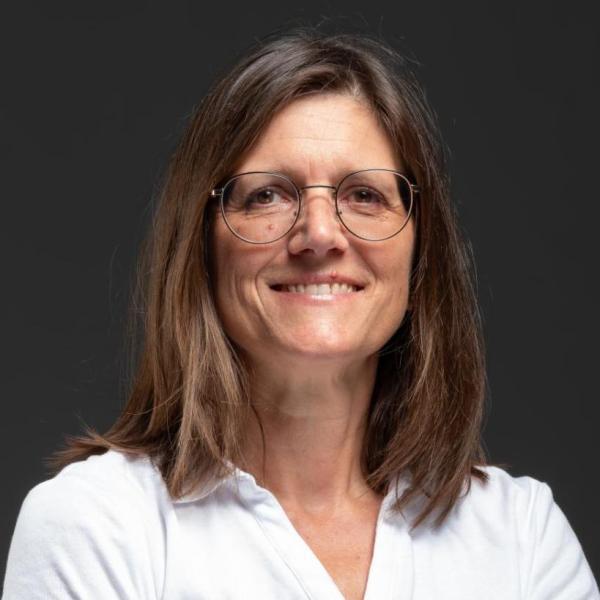
Caroline Rusterholz

Sayaka Sato
Profile Summary
Sayaka Sato is a cognitive psychologist and psycholinguist whose research investigates how gender information biases and motivates social mental representations. Her work focuses on the cognitive mechanisms underlying language processing, with particular emphasis on inclusive language and the role of grammatical gender in shaping thought. Beyond these core topics, she has developed a growing interest in intersectional perspectives, examining how factors such as gender and age interact. By integrating psychological insight and experimental methods, her research seeks to tackle the subtle ways in which language shapes broader social issues.
Current Projects
Currently, Sayaka is working on projects linked to language processing as well as intersectional issues, particularly investigating the interplay of gender and age. Specifically how gender and age (1) affected the pandemic, (2) affect prescriptive stereotypes.

Aline Siegenthaler
Profile summary
Aline Siegenthaler’s research focuses on linguistic aspects of gender-inclusive language. In her doctoral thesis, she examined the recommendations in gender-inclusive language guidelines in detail, contributing to a better understanding of these texts, which have been published by many different institutions, particularly in public administration and universities. She is continuing her research on guidelines through smaller projects and collaborations. Her most recent research interests include attitudes towards German gender-inclusive language strategies through metapragmatic positioning in an online forum.
Funding and collaborations
During her PhD, Aline Siegenthaler contributed to two projects concerning bilingual education in Switzerland, managed by Prof. Daniel Elmiger: a national inventory of bilingual education, and a critical literature review and bibliographic database of immersion and bilingual education programmes in Switzerland. Furthermore, she has cultivated a robust network of connections with other researchers specialising in gender and queer linguistics, resulting in numerous productive collaborations. These include partnerships with Prof. Lars Vorberger and Carla Sökefeld from the University of Hamburg, Samira Ochs from the IDS Mannheim, and Dr. Anne Rosar from the University of Mannheim. She is currently working on a project concerning the teaching and development of oral communicative competence in French as a foreign language at lower secondary level. This project is managed by Prof. Anita Thomas and Dr. Simone Morehed.
Current Projects
Smaller projects and collaborations (see above)
Research assistant in the project DISCO (Teaching and development of the oral communicative competence in French as a Foreign Language (FFL) at the lower secondary level)

